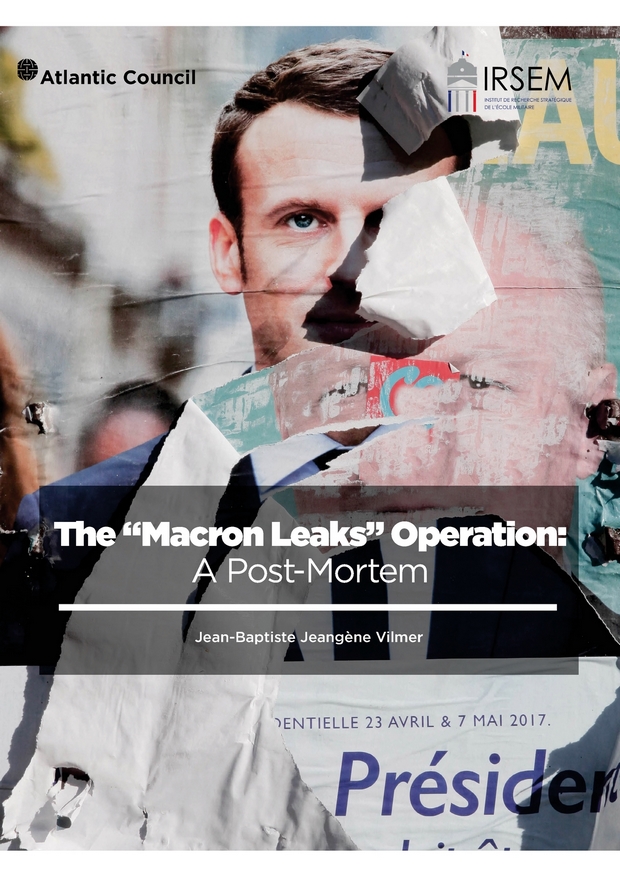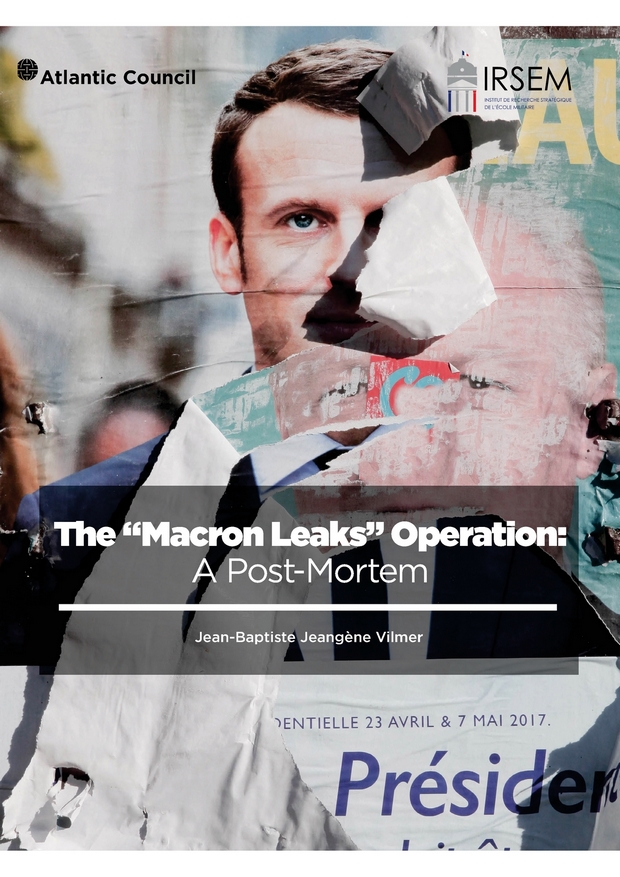The "Macron Leaks" Operation : A Post-Mortem
Présentation


Paris, Institut de recherche stratégique de l’Ecole militaire (IRSEM) / Washington DC, The Atlantic Council, juin 2019
58 pages
https://www.atlanticcouncil.org/pub...
In the long list of electoral interference attempts in recent years, one case stands out : the 2017 French presidential election—because it failed. Its failure lies in the fact that the result of the election did not coincide with the aim of the attackers. This new report, “The Macron Leaks Operation,” by Jean-Baptiste Jeangène Vilmer analyzes the coordinated attempt to undermine Emmanuel Macron’s candidacy, with a disinformation campaign consisting of rumors, fake news, and even forged documents ; a hack targeting the computers of his campaign staff ; and, finally, a leak—15 gigabytes (GB) of stolen data, including 21,075 emails, released on Friday, May 5, 2017—just two days before the second and final round of the presidential election. This leak was promoted on Twitter by an army of trolls and fake accounts (bots), with the hashtag #MacronLeaks appearing in almost half a million tweets in twenty-four hours, and so the attack is now remembered as “the Macron Leaks.” However, the leak itself was only the pinnacle of a coordinated operation that started months before, with a disinformation campaign and a hack. Therefore, we should rather speak of a “Macron Leaks” operation, which did not sway French voters and change the result. Winning 66.1 percent of the vote, Macron defeated Marine Le Pen, the far-right candidate. The aim of this report is to provide the most detailed single account to date of the “Macron Leaks” operation. With the benefit of hindsight, it explores what happened, who (likely) orchestrated the affair, how it was successfully countered, and what lessons can be learned. In conclusion, it will also explain what France has accomplished since then in order to fight information manipulation and what is yet to be done.
Contents
Acknowledgments
Abstract
Introduction
I- WHAT HAPPENED
1. The Disinformation Campaign
a) By the Kremlin media
b) By the American alt-right
2. The Aperitif : #MacronGate
3. The Hack
4. The Leak
5. In Summary, a Classic “Hack and Leak” Information Operation
6. Epilogue : One and Two Years Later
II- WHO DID IT ?
1. The Disinformation Campaign
2. The Hack
3. The Leak
4. Conclusion : a combination of Russian intelligence and American alt-right
III- WHY DID IT FAIL AND WHAT LESSONS CAN BE LEARNED ?
1. Structural Reasons
2. Luck
3. Anticipation
Lesson 1 : Learn from others
Lesson 2 : Use the right administrative tools
Lesson 3 : Raise awareness
Lesson 4 : Show resolve and determination
Lesson 5 : Take (technical) precautions
Lesson 6 : Put pressure on digital platforms
4. Reaction
Lesson 7 : Make all hacking attempts public
Lesson 8 : Gain control over the leaked information
Lesson 9 : Stay focused and strike back
Lesson 10 : Use humor
Lesson 11 : Alert law enforcement
Lesson 12 : Undermine propaganda outlets
Lesson 13 : Trivialize the leaked content
Lesson 14 : Compartmentalize communication
Lesson 15 : Call on the media to behave responsibly
5. Storytelling
CONCLUSION : THE ROAD AHEAD
1. Framing the Debate : The CAPS-IRSEM Report
2. Acting : Legislation, Media Literacy, and Internal Organization
3. Internationalizing : A Concrete Proposal
About the Author


